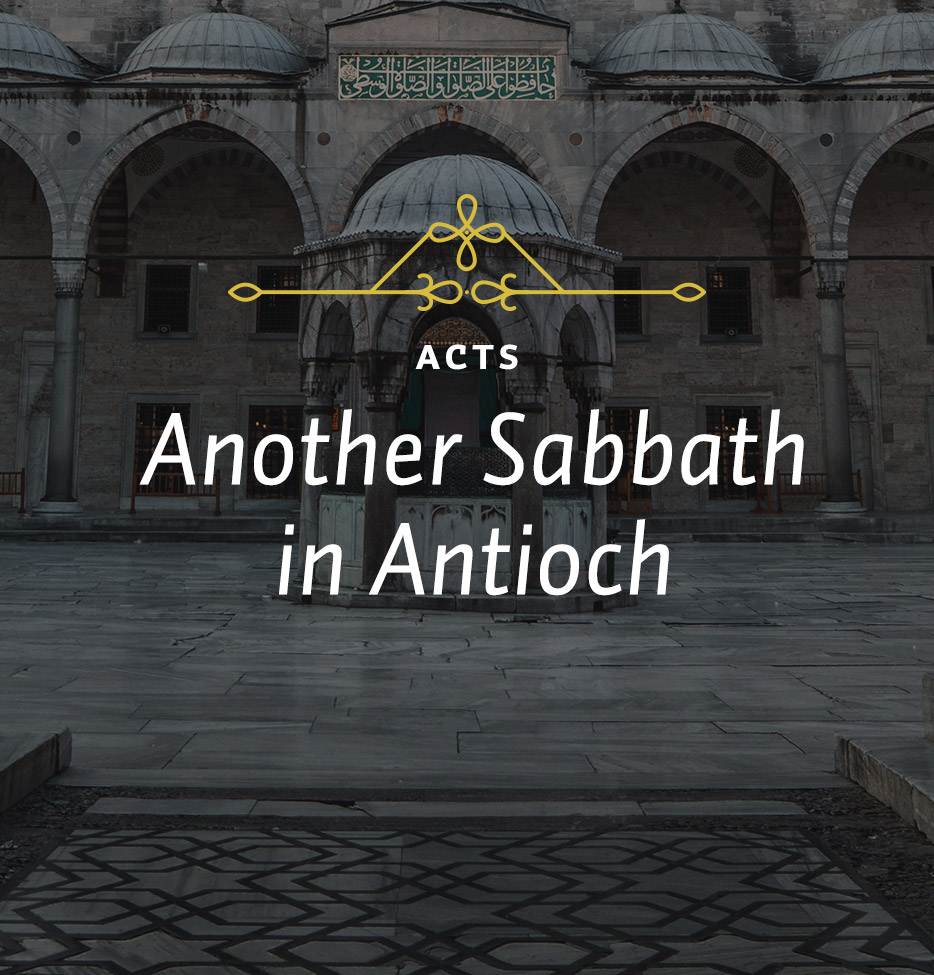What about the Jews among whom Paul first began his preaching? They “were filled with jealousy and talked abusively against what Paul was saying” (v. 45). Why? There were a number of reasons. For one thing, the way the Gospel was presented had indicated to these Jews that their leaders in Jerusalem had rejected Jesus. Paul said that Jesus was the Messiah, but the leaders in Jerusalem had not responded positively to this claim. This would not be lost on the Jews in Antioch. It is true that they invited Paul to come back, but they must also have been thinking about these things between the two Sabbaths, and this is perhaps one reason why they were resistant.
Again, Paul had said something about the law which they would have considered to be negative. Jews were committed to the Old Testament law. It was their life: learning the law, trying to figure out what the law meant, obeying the law. Paul had said in his sermon on the previous Sabbath, “Through him [Jesus] everyone who believes is justified from everything you could not be justified from by the law of Moses” (v. 39).
That is simple truth, of course. Nobody can be saved by law. All law can do is condemn those who have broken it. We all have. If a person is trying to get to heaven by obeying the law, he or she is destined to fail in the attempt. Paul knew this from his own experience. He had been a Pharisee, the strictest of all Jewish sects. He had tried to obey the law’s requirements, but he had failed. Before he met Jesus on the road to Damascus he had thought he was righteous. But he came to see that the things he was trying to do to become righteous were actually keeping him from the way of salvation, because they were keeping him from Christ.
Paul was trying to point out, as he did on every occasion and as he does in his epistles, that we are justified by the work of Christ and through faith in him only. The Jews who were listening must have construed that as preaching against the law of Moses.
The leaders in Jerusalem had said that about Jesus too, of course. He said, “Do not think that I have come to abolish the Law or the Prophets; I have not come to abolish them but to fulfill them” (Matt. 5:17). But the very fact He had to defend Himself in this shows what they were thinking. They were thinking, “He has come to tear down our traditions.” It must have been exactly the same in Antioch when Paul preached. They would have reacted negatively just because he had exposed the limitations of “their” law.
All that aside, it seems to me that what bothered the Jews of Antioch most was not so much that their leaders in Jerusalem had rejected Jesus or that Paul had said something that they might have construed as a negative comment on their law, but rather that the Gentiles were responding to the preaching of Paul in large numbers. It is why the text uses the word “jealousy,” saying, “They were filled with jealousy and talked abusively against what Paul was saying” (v. 45). That had been the problem all along. They had not cared if the Gentiles sat in the back of their synagogues, paid attention and perhaps in time became good Jews through circumcision. That was all right. They were glad to have that, just as Christians are glad to have people sit in their pews and eventually become good Presbyterians or Baptists or Episcopalians or whatever. But they did not want the Gentiles coming as Gentiles and being received by God in exactly the same way they thought they themselves should be received since they were Jews.
We are told that at the end of the first Sabbath “many of the Jews and devout converts to Judaism followed Paul and Barnabas” (v. 43). They would have asked how a person could be saved, what the grounds for salvation were, what a person had to do to qualify. Paul, who certainly preached a Gospel of salvation by grace through faith alone, did not tell the Gentiles that they had to become Jews first before God would receive them. To the Jews this would have been seen as a betrayal of their religious heritage.
We are going to find this same matter again not very much further on in Acts. In fact, we are going to find it in the fifteenth chapter. This chapter recounts the battle Paul fought in Jerusalem at the first church council. In Jerusalem his opponents were not even unbelieving Jews. They were Christian Jews who nevertheless wanted the Gentiles to become Jews first by circumcision before they could be saved. Paul and those who had traveled with him argued just as strenuously that a person is saved through faith in Jesus Christ alone. No one has to do anything first. No one has to become something else. The door to Christ is not Judaism or a Protestant church or a Catholic church or anything else. The door is Christ.






